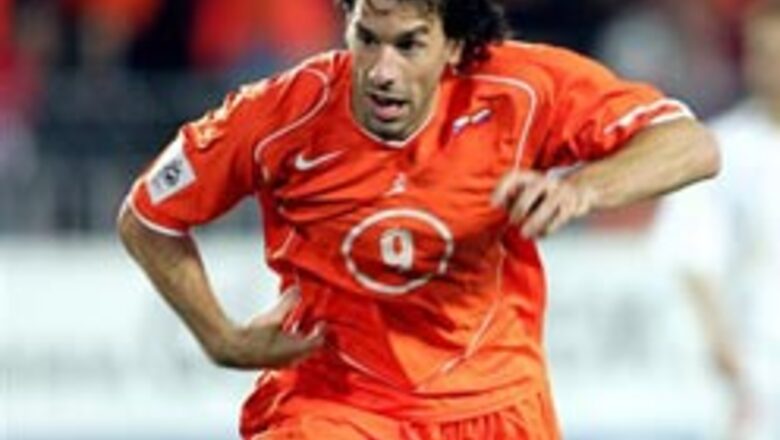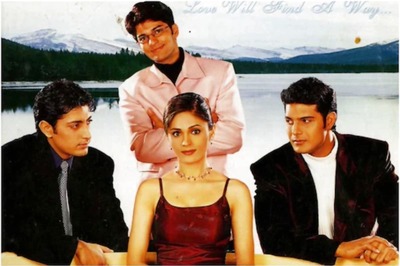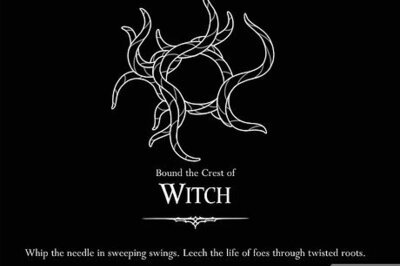
views
Amsterdam: "I want my bicycle back," taunts the German slogan on a Dutch fan's T-shirt, making light of Nazi plundering of the Netherlands while stirring up one of the most bitter rivalries in international soccer.
Dutch-German encounters bristle with pride and emotion as the legacy of World War II has fused with the memories of 32 years' worth of high-stake meetings on the pitch.
Although the earliest both teams could meet at the World Cup this time would be the quarter-finals, the heated Dutch-German clashes of 1974 and 1988, both on German soil will weigh heavy on Dutch minds from the start as they head east to the home of their arch-foes.
Dutch coach Marco van Basten, the country's football authority and Oranje supporters' club have all tried to play down suggestions that the rivalry will animate players and fans.
Yet bright orange T-shirts with provocative German slogans, and replica World War II helmets have been selling fast in the run-up to next month's tournament when an estimated 20,000 Dutch fans will travel to their larger neighbour.
"It's a historical thing. There has always been this rivalry and only in the last few years has it become more friendly," said Florian van Laar, the creator of the helmets, who dismisses them as harmless fun.
To Dik Linthout, a writer on Dutch-German relations, the helmets are the sort of inevitable bad joke you see in soccer.
He says Germans, long bemused by the amount of anti-German propaganda in the Netherlands, are now responding in kind, helping to ease tensions.
"We are seeing Germans make the same jokes and display the same bad taste as we have. That's progress."
On the day of the last Dutch-German friendly in 2005, German greengrocers sprayed their oranges with black paint, he recalls.
When the Netherlands failed to qualify for the 2002 World Cup delighted German fans composed a special song.
For Linthout, Dutch passion for football is easily explained: "We love being small yet good at something."
"We are good at speed-skating and korfball too. But soccer matters more." Korfball, invented by a Dutch teacher, is a mixed team game combining elements of netball and basketball.
The Netherlands are the world champions. Ever since captain Johan Cruyff lifted the Dutch team to among the best in the world, soccer has allowed the nation of 16 million to punch above its weight and has become a focal point for Dutch-German rivalry.
PAGE_BREAK
It all hails back to the 1974 World Cup final, when the Dutch scored in the first minute only to lose 2-1. Legend has it they refused to attend the post-match meal.
"We had an incredible team and we should have won that match," said fan Sytze Bonte, who was aged just two at the time. "I watched the match later," he explained.
Revenge came 14 years later when the Dutch knocked West Germany out of the semi-finals of the European championship, and the country celebrated the biggest party since the liberation.
It came to be seen as a reversal of the Nazi invasion. "In 1940 they came, in 1988 we came," chanted elated Dutch fans.
During an ill-tempered clash in the second round of the 1990 World Cup Frank Rijkaard spat in Rudi Voeller's hair.
After further angry exchanges both men were sent off, though they say they have made up since, even appearing in an advertisement together.
When the teams met in Euro 2004, Dutch striker Ruud van Nistelrooy said the game was not just about football history but about real history, comments which sparked fury in Germany.
Occasionally violence has flared off the pitch. The most serious incident occurring during Euro 92 when Germans threw a bomb into a Dutch disco.
However, many younger Dutch fans today are quick to point out their respect for the German team and reject the most pointed anti-German sentiment.
"There is really not so much rivalry any more. If there is it's just a bit of fun and not such a big deal," said Bonte.
Linthout believes that as memories of the occupation fade, the relationship will return to what it was before World War Two, characterised by the natural friction that can occur between any nation and its larger neighbour.
There is grudging mutual admiration. Germans envy the informality of the Dutch and their practical business-sense, while the Dutch respect the rich cultural history of the land of composers, poets and philosophers.
At the same time the Dutch have watched the decline of their neighbour's economic might and have suffered its impact.
For all the posturing and provocation the two nations have more in common then they care to admit.
Some 80 per cent of Dutch words are directly related to German, the father and husband of Dutch Queen Beatrix were both Germans and a recent comparative study of European intelligence quotients (IQ) by Ulster University placed the Dutch and the Germans jointly at the top.














Comments
0 comment